The IDP Eclipse Drills are modified Eclipse Drills originally manufactured by Icefield Instruments, Inc. The drill is an electromechanical system capable of collecting 81 mm (3.2-inch) diameter core to depths of approximately 300 meters. The drill system is transportable by small aircraft or helicopter. IDP has two Eclipse Drill systems that it regularly deploys.
In 2013, IDP designed and fabricated a solar and wind power system for use with the drill, which has proven useful at field sites where environmental impact is of concern and where use of a generator is not desirable or permitted. In 2017, IDP completed a redesign of the aging control boxes and readout boxes to provide simplified operation, weight reduction and new sealed cases. In 2018, new cover panels were implemented for the traversing system. New cases were also procured for the motor section and tower frame. New load pins and load pin amplifiers were implemented to make the load sense circuit more robust. Beneficial updates were made to the Operations and Maintenance Manual and minor maintenance is performed between field seasons.
Two Eclipse Drills are available for use. One is referred to as the ‘standard’ Eclipse Drill and the other as the ‘traversing’ Eclipse Drill, since it is sled-mounted. IDP has traditionally deployed the Eclipse Drills with Mountain Hardwear Space Station tents, but after experiencing stability issues during high winds, IDP is currently testing a new inflatable tent by Axion.
Equipment Details
| Name | Eclipse Drill |
|---|---|
| Type |
Type
Ice coring
|
| Number in Inventory |
Number in Inventory
2
|
| Max. Practical Depth |
Max. Practical Depth
300 m
|
| Hole Diameter |
Hole Diameter
113 mm (4.4 inches)
|
| Ice Core Diameter |
Ice Core Diameter
81 mm (3.2 inches)
|
| Ice Core Length |
Ice Core Length
1 m
|
| IDP Driller Required? |
IDP Driller Required?
Yes, 1 driller (2 people required for drill operation)
|
| Drill Fluid Required? |
Drill Fluid Required?
No
|
| Power Requirements/Source |
Power Requirements/Source
120 V, 3 kW generator or Solar and wind power system
|
| Estimated Drilling Time |
Estimated Drilling Time
100 m - 60 hours |
| Time to Move (breakdown and setup) |
Time to Move (breakdown and setup)
4 hours
|
| Helicopter Transportable? |
Helicopter Transportable?
Yes
|
| Light Aircraft Transportable? |
Light Aircraft Transportable?
Yes
|
| Shipping Weight |
Shipping Weight
1300 lbs |
| Shipping Volume (Cube) |
Shipping Cube
70 |
| Comments |
Documents
| Citation | Year |
|---|---|
| Joanne S Johnson, John Woodward, Ian Nesbitt, Kate Winter, Seth Campbell, Keir Nichols, Ryan Venturelli, Scott Braddock, Brent Goehring, Brenda Hall, Dylan H Rood, Greg Balco (2025) Assessing the suitability of sites near Pine Island Glacier for subglacial bedrock drilling aimed at detecting Holocene retreat–readvance. The Cryosphere, 19, 303-324. doi: 10.5194/tc-19-303-2025. https://doi.org/10.5194/tc-19-303-2025 | 2025 |
| NSF Ice Drilling Program (2024) Eclipse Drill Operations and Maintenance Manual. 1-62. | 2024 |
| Pavel Talalay, Xiaopeng Fan, Zhichuan Zheng, Jun Xue, Pinlu Cao, Nan Zhang, Rusheng Wang, Dahui Yu, Chengfeng Yu, Yunlong Zhang, Qi Zhang, Kai Su, Dongdong Yang, Jiewei Zhan (2014) Anti-torque systems of electromechanical cable-suspended drills and test results. Annals of Glaciology, 55, (68), 207-218. doi: 10.3189/2014AoG68A025. https://doi.org/10.3189/2014AoG68A025 | 2014 |
| Vladimir Aizen, Christine Foreman, Andrei Kurbatov, Erich Osterberg, Eric J Steig (2011) 10 year plan for Shallow Coring Capabilities (1-400 m deep). 2011 Ice Drilling Science Community Planning Workshop, April 15-16, 2011, Herndon, Virginia, USA, 1-5. | 2011 |
| Erik W Blake, Cameron P Wake, Michael D Gerasimoff (1998) The ECLIPSE drill: a field-portable intermediate-depth ice-coring drill. Journal of Glaciology, 44, (146), 175-178. doi: 10.3189/S0022143000002471. https://doi.org/10.3189/S0022143000002471 | 1998 |
Photos
Drilling with the Eclipse Drill at Mount Waesche, West Antarctica, during the 2024/25 field season. Credit. Nels Iverson.
Traversing the Eclipse Drill at Mount Waesche, Antarctica, during the 2024-2025 field season. Credit: Elliot Moravec.
Dr. Sarah Shackleton, Elizabeth Morton, and Mike Jayred inside the drill tent for the Eclipse Drill during the 2023/24 field season at Allan Hills, Antarctica. Credit: Peter Neff, COLDEX.
Drilling tent and Eclipse Drill in operation at a snowy Allan Hills, Antarctica, during the 2015-2016 summer field season. Credit: Mike Waszkiewicz
A solar and wind power system in use for Eclipse drilling in Denali National Park during the 2013 field season. Credit: Mike Waszkiewicz
One of the shallow drill sites at Allan Hills, Antarctica, during the 2009-2010 summer field season. Credit: Mike Waszkiewicz

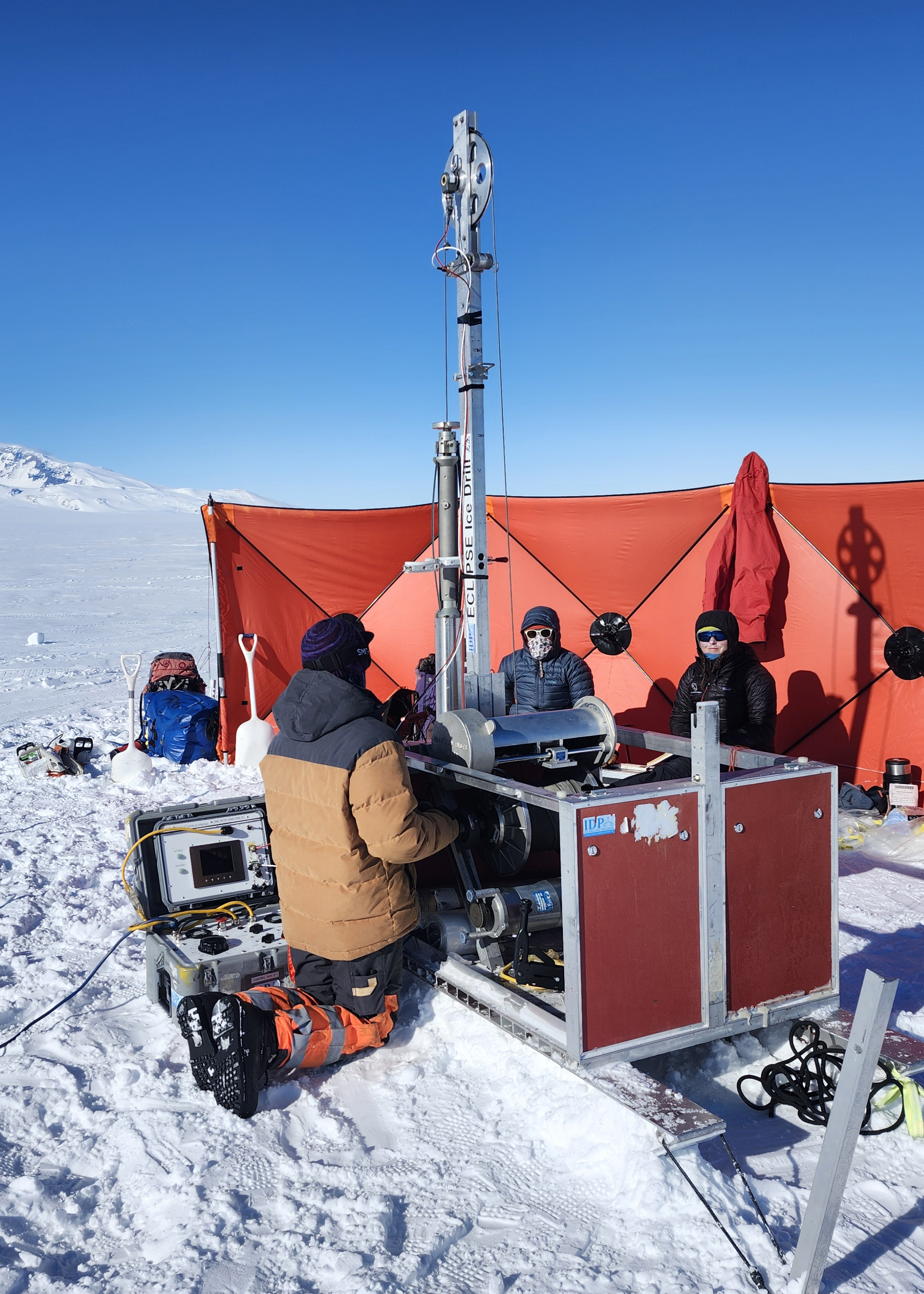
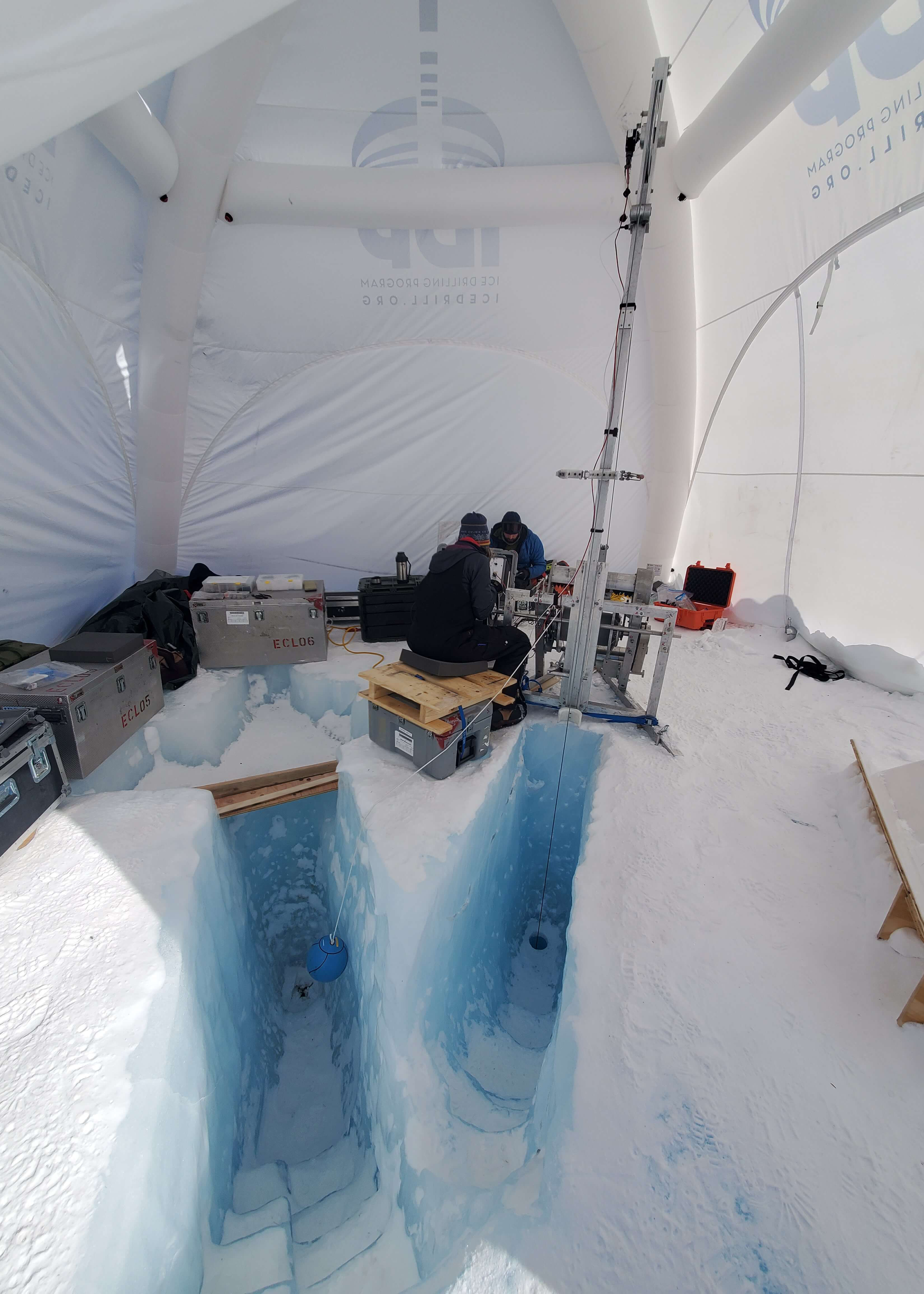
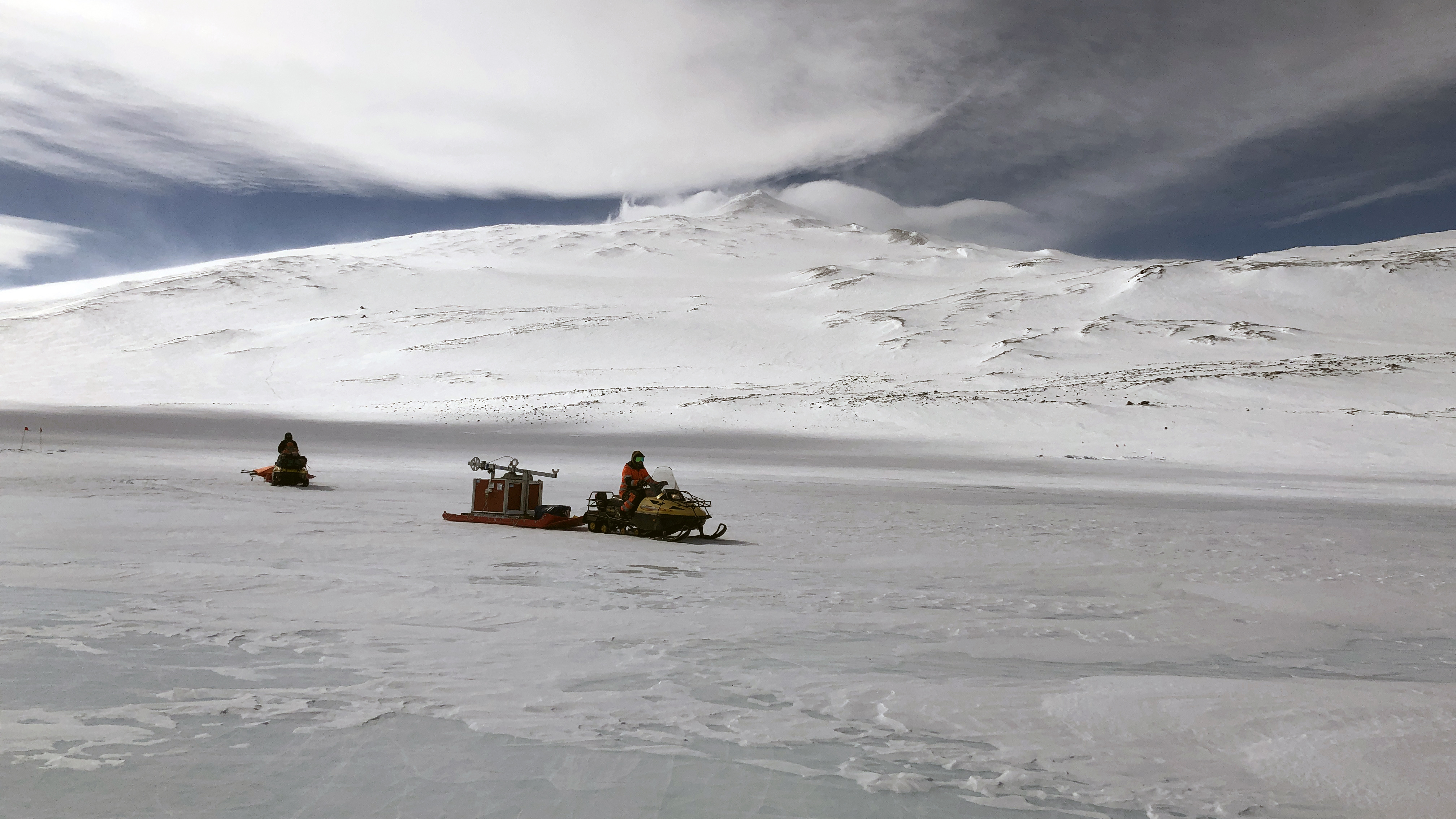
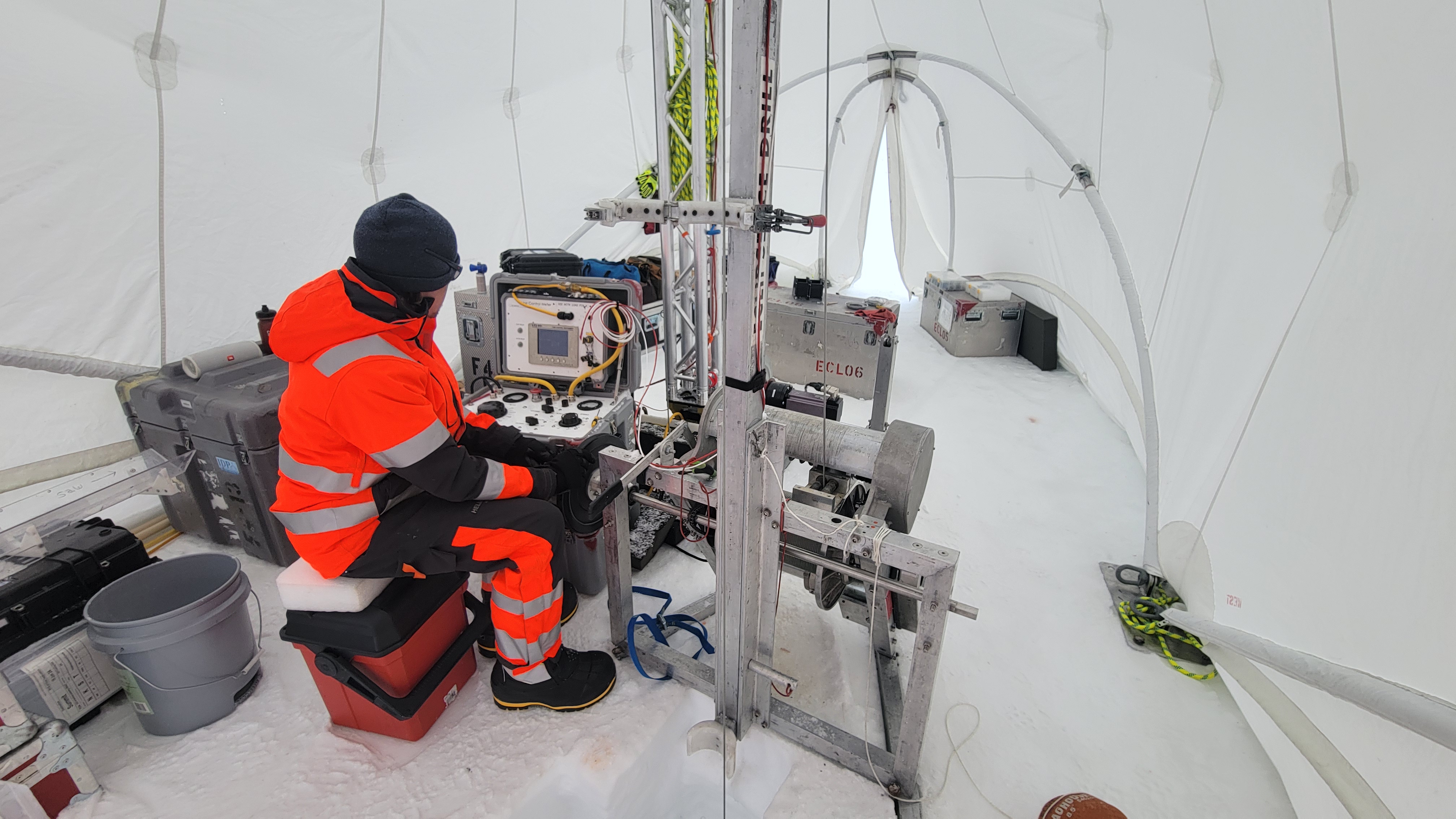
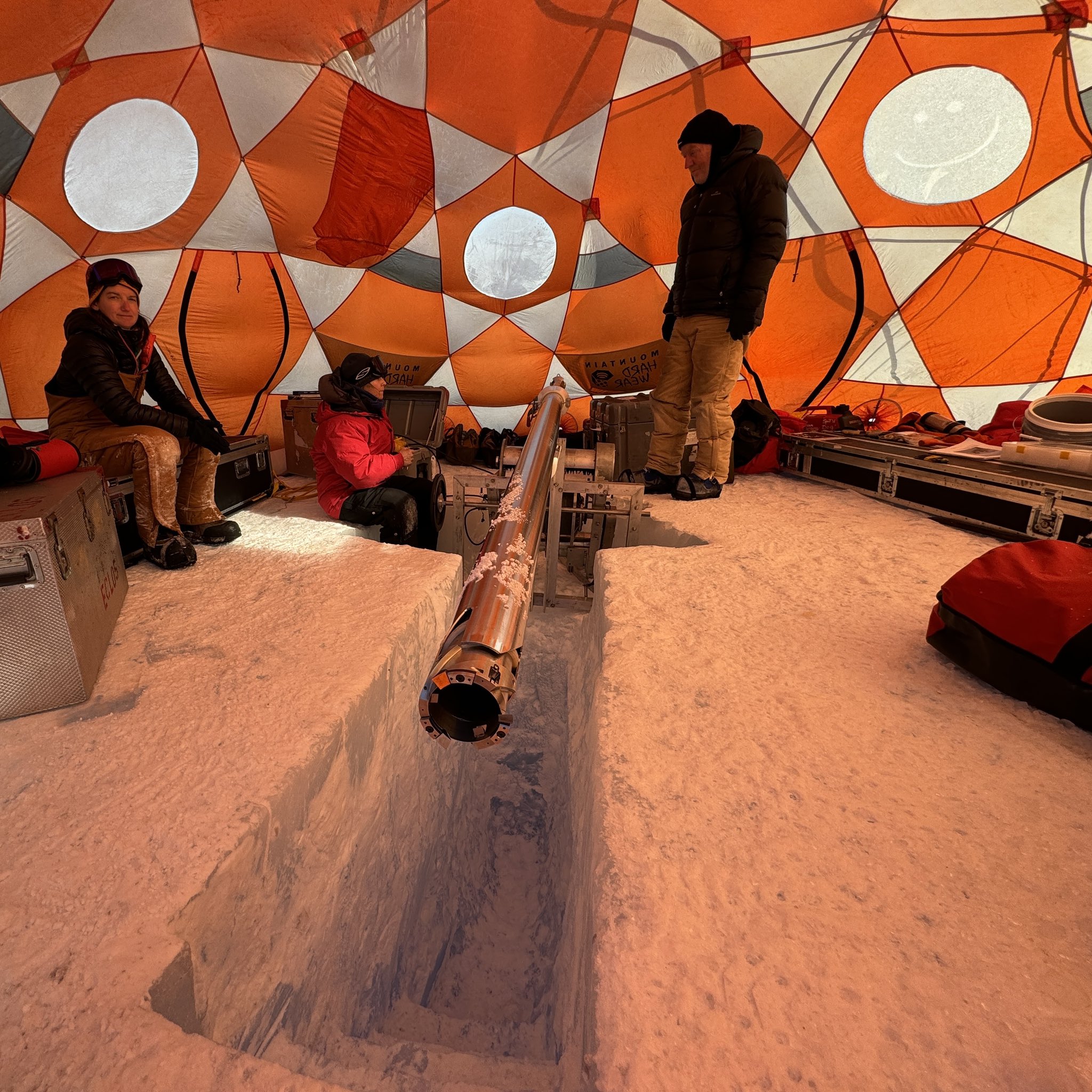
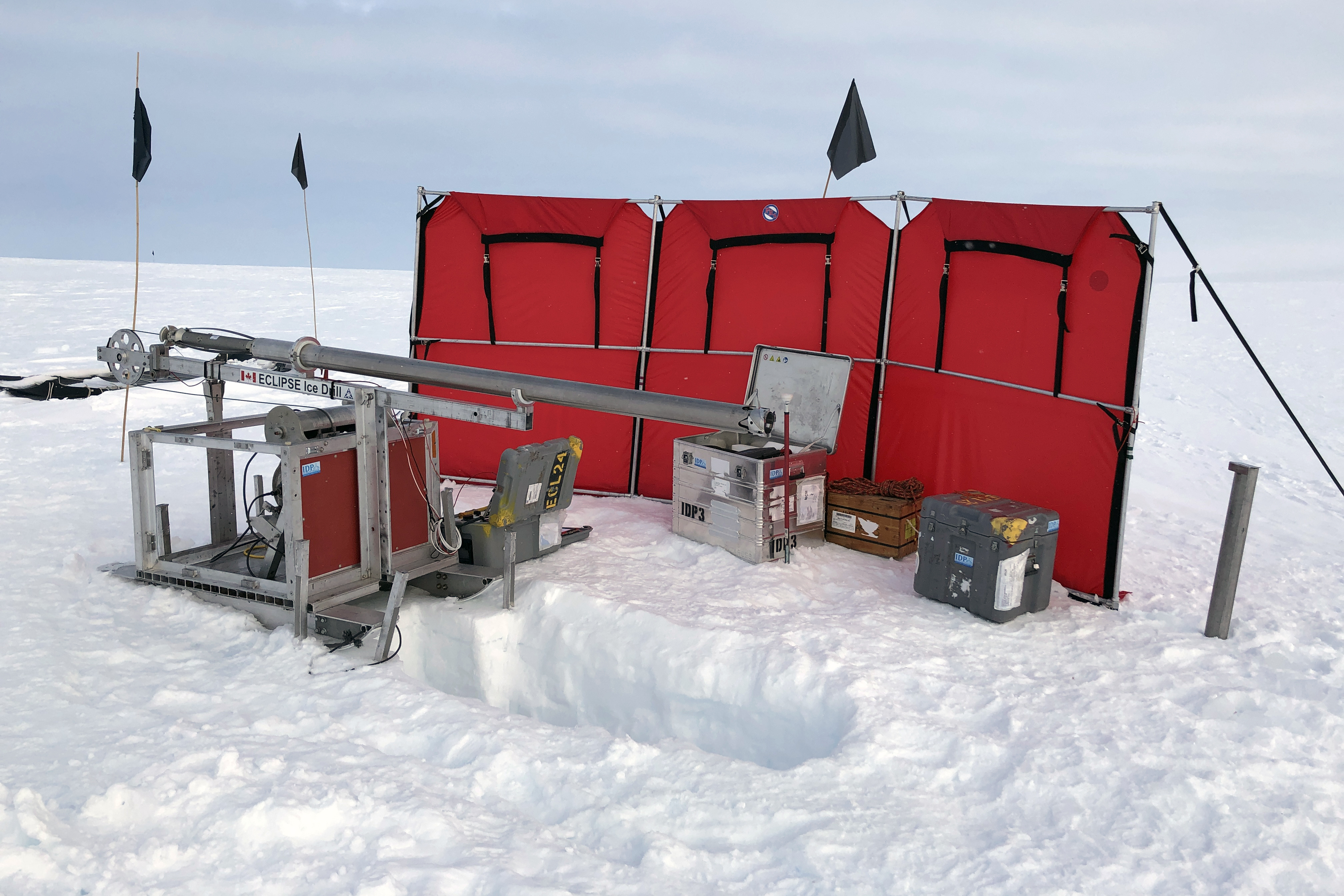

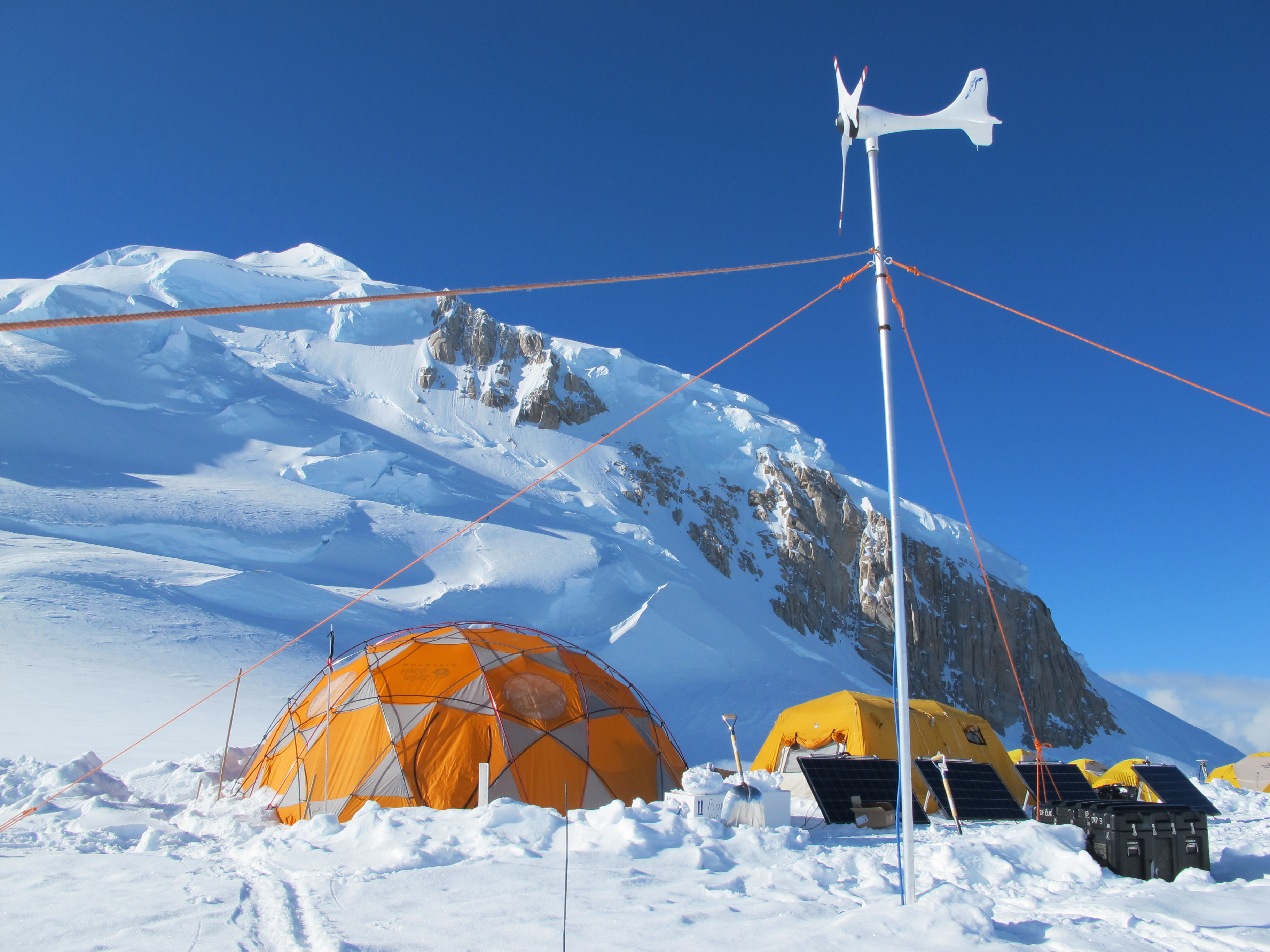
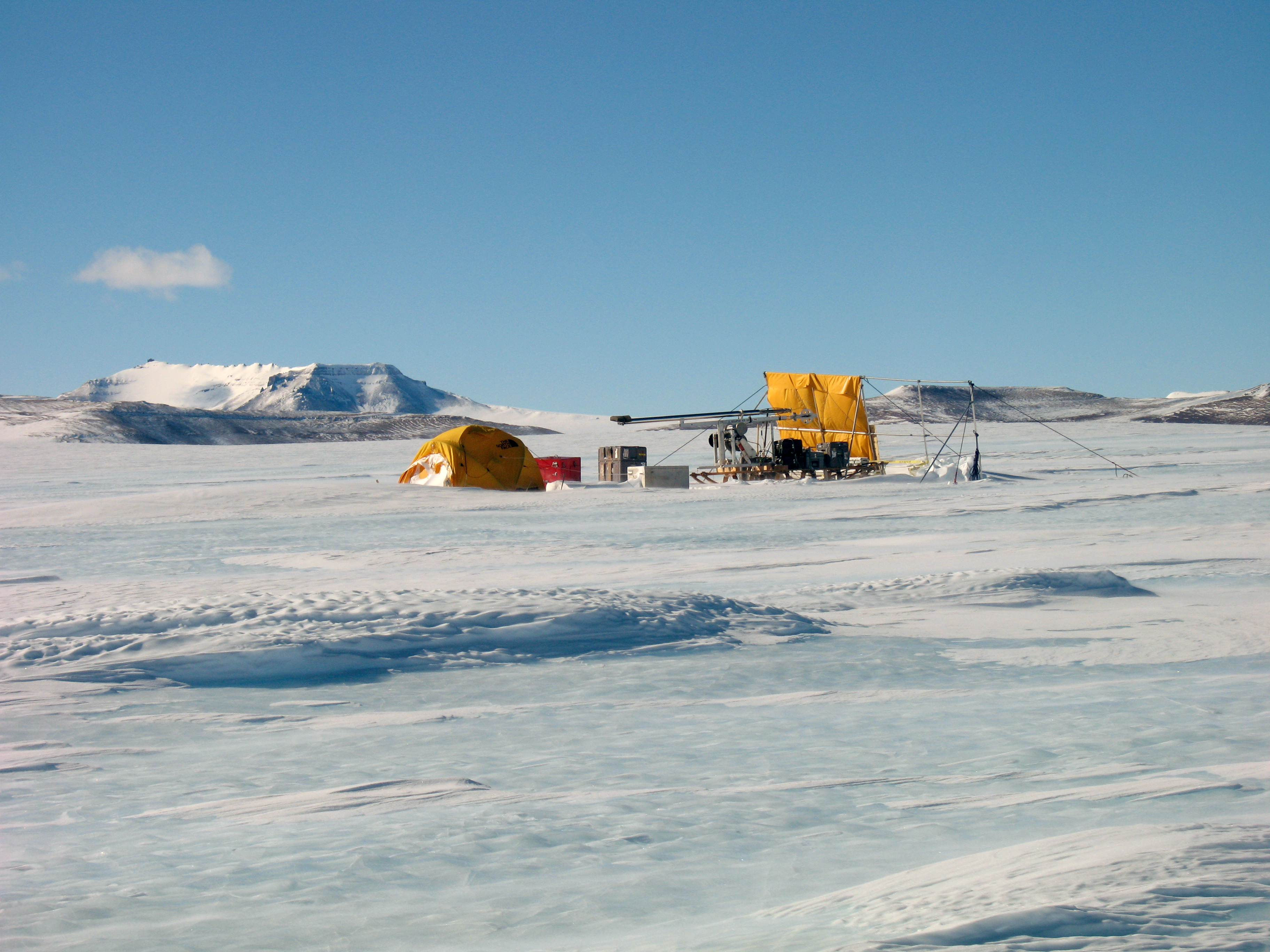
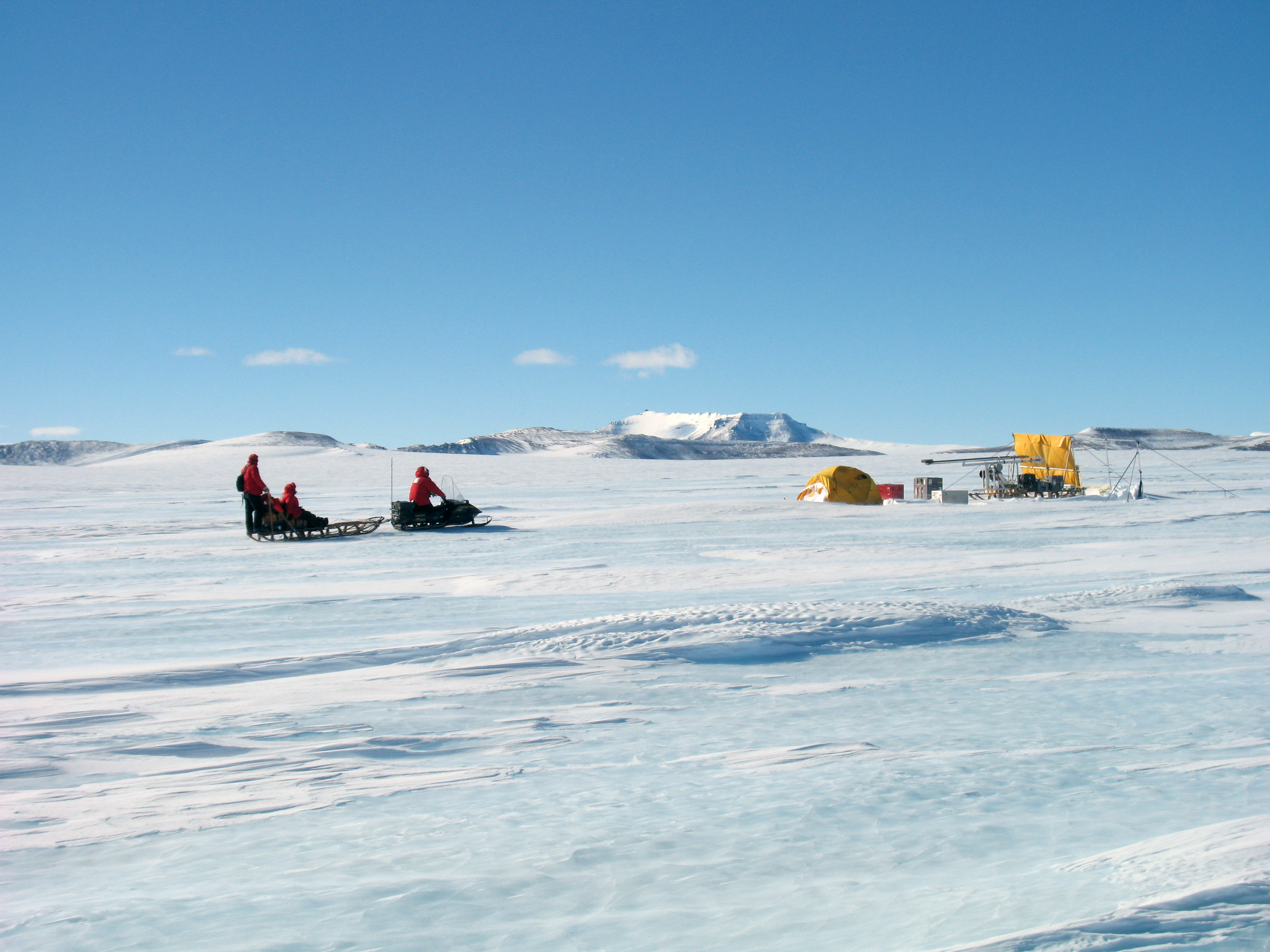

Complete unit operating ~800 lbs. Heaviest component is the winch (on sled) 400 lbs. Winch control box 250 lbs.